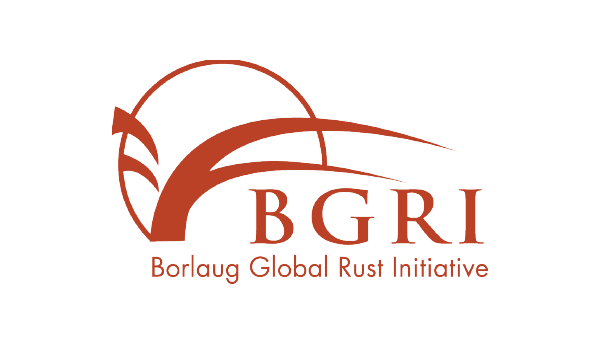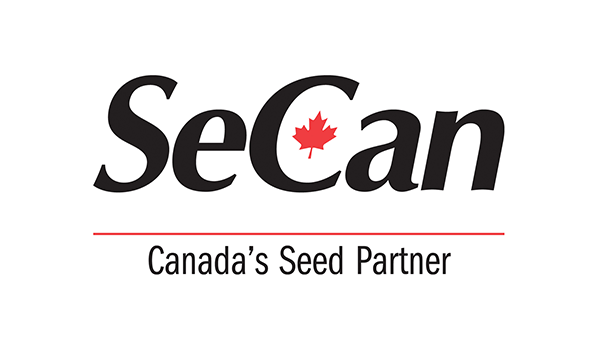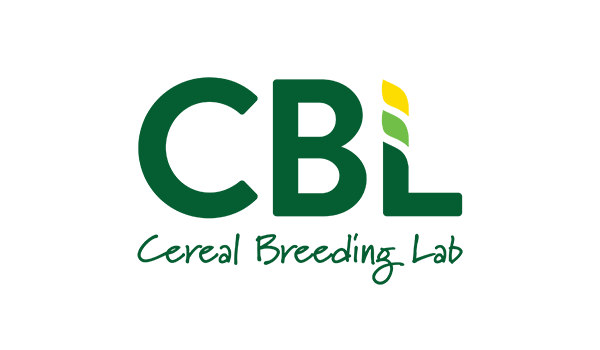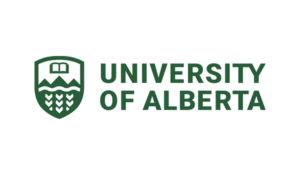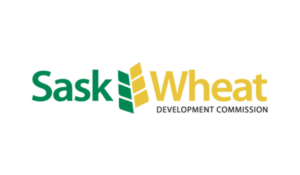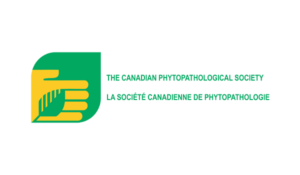The 17th International Cereal Rusts and Powdery Mildews Conference (ICRPMC2025) is scheduled for June 15-20, 2025 in Vancouver, British Columbia. This meeting will take place as a joint meeting with the Canadian Phytopathological Society (CPS) Annual Meeting. The ICRPMC’s mission is to promote and disseminate the latest scientific advances in research on cereal rusts and powdery mildews, and facilitate discussions and collaborations toward globally sustainable cereal disease management.
Additionally, the meeting with host two technical workshops.
CPS Workshop – Sunday, June 15 at 1pm
We invite you to attend our hands-on workshop, titled “Identification of Rust Fungal Species Using Metabarcoding and AODP”, held as part of the Joint Meeting of the 17th International Cereal Rusts and Powdery Mildews Conference and the 2025 Annual Meeting of the Canadian Phytopathological Society, taking place between June 15-20, Vancouver, BC.
This interactive session focuses on cutting-edge applications of diagnostic metagenomics in modern agriculture and plant pathology. Participants will learn how to use short-read metabarcoding data and our in-house bioinformatics tool, AODP (Automated Oligo Design Pipeline), to achieve species- and subspecies-level pathogen identification — a crucial step toward improved disease surveillance and early warning systems.
With growing global threats from emerging plant pathogens, integrating bioinformatics into disease diagnostics has never been more important. Whether you’re a plant pathologist, microbial ecologist, or bioinformatics researcher, this workshop will equip you with practical tools to support high-resolution pathogen detection and decision-making in crop protection.
Registration for this event is $30CAD is completed using the Registration link.
BGRI Workshop – Wednesday, June 18 from 8:30am-12:00pm
The Borlaug Global Rust Initiative (BGRI) is proud to host the 2025 BGRI Technical Workshop as part of the 17th International Cereal Rusts and Powdery Mildews Conference (ICRPMC), in collaboration with the European and Mediterranean Cereal Rust Foundation (EMCRF) and the Canadian Phytopathological Society.
This year’s workshop highlights a major advancement in global wheat disease management: the Wheat Disease Early Warning and Advisory System (DEWAS). Developed through a multi-institutional partnership led by CIMMYT and supported by BGRI, DEWAS integrates real-time surveillance, forecasting, and molecular diagnostics to provide timely alerts for wheat rust, wheat blast, and Fusarium head blight across eight countries in East Africa and South Asia.
Details of the BGRI 2025 Technical Workshop
Call for Proposals – 18th ICRPMC 2028 Meeting
On behalf of the European and Mediterranean Cereal Rust Foundation (EMCRF), the organizers of the 17th International Cereal Rusts and Powdery Mildews Conference (ICPRMC) 2025 are pleased to open the call for host country proposals for the 18th ICRPMC 2028 meeting. Please submit an expression of interest to EMCRF Chair, Mogens Støvring Hovmøller, via email (mogens.hovmoller@agro.au.dk), subject line: “Expression of interest for hosting 18th ICRPMC”, ideally before our upcoming conference, and no later than October 1st 2025. The EMCRF Board will make a first review applications at a scheduled board meeting on June 16th, and reach a decision before the end of 2025.
Accommodation
Delegates
You may book accommodation for the conference at UBC by clicking here, or you may contact the Reservations office directly:
Conferences and Accommodation at UBC
Phone: 604 822 1000 or toll free: 1 888 822 1030
Email: reservations@housing.ubc.ca
Registration Details
Extended Early Bird to April 30, 2025
Early Bird registration for the 17th ICRPMC will open on January 1, 2025 and close on April 30, 2025.
As this is a joint meeting with the Canadian Pathological Society (CPS) Annual Meeting, members will receive discounted registration pricing. All registrants are encouraged to apply for membership to the CPS.
CPS Memberships: Regular Academic – $100; Emeritus – Free; Students -$15; PDF and Research Technician – $25.
Registration to the ICRPMC 2025 meeting will be completed through the CPS website.
| 2025 ICRPMC Registration | ||
|---|---|---|
| Full Registration | Early Bird | Standard |
| Standard | C$950 | C$1050 |
| Standard – CPS Members | C$800 | C$900 |
| Students/Postdoctoral Fellows/Research Technicians | C$700 | C$800 |
| Students/Postdoctoral Fellows/Research Technicians – CPS Members | C$550 | C$650 |
| Single Day Registration | Early Bird | Standard |
| Standard | C$300 | C$300 |
| Students/Postdoctoral Fellows/Research Technicians | C$200 | C$200 |
Abstracts Abstracts will be accepted beginning January 1, 2025.
Call for Abstracts
You are invited to submit abstracts to the Joint Meeting of 17th ICRPMC, Annual Meeting of the CPS, and BGRI Technical Workshop 2025. Please note the submission deadline for oral presentations has been extended to April 15, 2025. The deadline for poster abstracts remains at May 15, 2025. Participants can choose to submit an abstract for oral presentation consideration or for poster presentation. All abstracts will be reviewed by the Organizing Committee to ensure the abstracts are relevant to the meeting. Authors of abstracts selected for regular or keynote (keynote speakers will also be selected through peer-review) oral presentation will be contacted in by April 10, 2025. All abstracts will be included in the final program which will also be available online after the conference. Abstracts are limited to 250 words within the “abstract text” section and must be submitted using the “Abstract Template”. If you have more than one abstract, each one will need to be submitted separately.
Abstracts must be provided to the Conference Organizer in electronic format. Send to Tracy Gartner at tgartner@ualberta.ca.
Physical poster specifications:
Posters must measure a maximum of 36 inches wide X 48 inches high (91 cm X 121 cm). Each will be mounted vertically and occupy one-third of one side of a freestanding poster display board. The poster board will accommodate pushpins and will be Velcro-receptive. Presenters will be provided with Velcro or pushpins for hanging their posters.
Poster content should include:
- Title, author(s) name(s) and their affiliation(s). Text should be not less than 1 inch (2.54 cm) high and preferably 2 inches (5 cm) high.
- Introduction, materials and methods, results, and discussion. Presenters should select a font and letter size to allow viewers to read the poster from a distance of 4 feet (1.2 meters) or more. (Note: A matte finish on the posters provides better visibility as it reduces glare).
- Consider less rather than more words within your poster, and refrain from using very small font for your poster.
- Posters will be on display during the conference and should carry your message without requiring any additional comment.
- Material presented must be based on the abstract previously submitted and should be novel, not previously published material.
Poster setup
You are invited to setup your poster starting at 3:00 pm on Monday, June 16. Posters will remain on display for the entire length of the conference and must be taken down no later than 3:00 pm Thursday, June 19. Posters remaining on site will not be retained or returned.
Presenting authors are expected to be available near their poster to answer questions and engage in discussions. Poster session times can be found on the conference agenda.
If your plans change and you cannot attend and/or will not be displaying your poster, kindly inform us by sending an email at tgartner@ualberta.ca
Oral Presentations
Oral presentation abstract submissions will open January 1, 2025 and close April 15, 2025
Please complete the ICRPMC2025 Abstract Template and email it to Tracy Gartner at tgartner@ualberta.ca.
Notification on acceptance of abstracts for an oral talk is May 21, 2025.
Poster Presentations
Poster presentation abstract submissions will open January 1, 2025 and close May 15, 2025.
Please complete the ICRPMC2025 Abstract Template and email it to Tracy Gartner at tgartner@ualberta.ca.
Notification on acceptance of abstracts for a poster is May 31, 2025
Plenary Speakers

Urmil Bansal Molecular Geneticist, University of Sydney Plant Breeding Institute (PBI), Cobbitty, Aus
Associate Professor Urmil Bansal has headed gene discovery and marker development at the University of Sydney, Australia. She has focused on identifying genes responsible for rust resistance in wheat and developing linked molecular markers to facilitate the efficient selection of these resistance genes. Her work involves cutting-edge techniques such as genomics and bioinformatics, allowing for a more precise understanding of the genetic mechanisms underlying disease resistance.
In addition to her contributions to gene discovery, Associate Professor Bansal has collaborated with breeders to translate her findings into practical applications, enabling the development of more resilient wheat varieties that can withstand rust resistance in field. Her research not only aims to enhance crop productivity but also strives to minimize the reliance on chemical fungicides, promoting sustainable agricultural practices.
Furthermore, she has published numerous articles in prestigious journals, sharing her findings with the broader scientific community and influencing practices in plant breeding. Through her commitment to education and mentorship, she has inspired a new generation of scientists to pursue innovative research in plant pathology and genetics, making a lasting impact on the field.

James Brown Group Leader of Advancing Plant Health/John Innes Centre, Norwich, UK
James Brown is a research group leader in plant pathology at the John Innes Centre, Norwich, England. He was brought up on a farm in Scotland and worked in rural development in South India before taking his PhD at the Plant Breeding Institute in Cambridge. Throughout his career at the John Innes Centre, he has studied genetics of fungal diseases in relation to sustainable disease control. He has studied powdery mildew and Septoria leaf blotch of wheat in particular but also many other diseases. Much of his group’s research has concerned durable disease resistance, including trade-offs between responses to different pathogens, genetics of virulence, and how monoculture accelerates pathogen adaptation to crops. He teaches quantitative genetics, statistics and durable resistance to M.Sc. students studying plant genetics and crop improvement, emphasising the need to understand and improve disease resistance within the context of the whole phenotype of the crop. Recently, he has been working on disease resistance in hardwood trees, taking lessons from the success of breeders in developing durable resistance in cereals and applying them to develop strategies for protecting ash and elm against invasive fungal pathogens. He also has a long-term interest in evolution of fungicide resistance and his group has recently discovered mechanisms of resistance to two groups of fungicides.

Guus Bakkeren Research Scientist Agriculture and Agri-Food Canada, Summerland, BC and Adjunct Professor, Department of Botany, UBC, Vancouver, Canada
Guus Bakkeren received his B.Sc. and M.Sc. degrees from from Wageningen University, The Netherlands (work on Rhizobium) and his PhD. degree in 1989 from Basel University, Switzerland (working with Barbara Hohn on the Agrobacterium T-DNA transfer mechanism). He then moved to Canada where he worked from 1990 to 1997 as a Research Associate with Jim Kronstad at UBC, Vancouver. There he pioneered work on the mating-type genes in the barley smut pathogen, Ustilago hordei, discovering its bipolar mating type in contrast to the known tetrapolar system in the corn smut fungus, U. maydis, and starting work towards isolating avirulence genes from U. hordei. Since1998 he is employed at the Summerland Research and Development Centre of Agriculture and Agri-Food Canada, continuing research on U. hordei avirulence effectors (cloning the first smut avirulence effector), but also in 2000, embarking on the first genomics research in the wheat leaf rust fungus, Puccinia triticina – wheat pathosystem. He was one of the first revealing rust fungus gene information through EST sequencing. This led to pioneering research for potential WLR control through Host-Induced Gene Silencing. In collaboration, he produced a P. triticina reference genome in 2017 and generates further genomic resources for the research community. Revealing mating-type allele specificities in the large genomic resources has yielded tremendous insight into population structures for both P. triticina and P. striiformis f.sp. tritici, which was done in collaboration. Current large-scale genome assemblies focus on the north-American WLR fungus populations.

Christina Cowger Research Plant Pathologist, US Department of Agriculture - Agricultural Research Service (USDA-ARS) Plant Science Research Unit, Raleigh, and Adjunct Professor - Department of Entomology & Plant Pathology, North Carolina State University, Raleigh, USA
Christina Cowger is a Research Plant Pathologist in the USDA-ARS Plant Science Research Unit, based in Raleigh, North Carolina, and an adjunct professor in the Department of Entomology & Plant Pathology of North Carolina State University. Her research focuses on the epidemiology and sustainable management of wheat and barley diseases, including powdery mildew. She is particularly interested in pathogen adaptation to host-plant resistance and factors that increase the durability of resistance. Dr. Cowger has helped identify numerous sources of resistance to cereal diseases, as well as illuminating the epidemiology of those diseases and the population dynamics of the pathogens. She has given more than 95 invited talks, including in Ireland, Mexico and Denmark, and her research has appeared in over 90 refereed journal articles, and in 4 book chapters and numerous publications for stakeholders.
Dr. Cowger currently serves as a Senior Editor of Phytofrontiers. She is an Associate Editor in Plant Pathogen Interactions for Frontiers in Plant Science, and in 2022 led the compilation of a special research topic, “Advances in Breeding for Wheat Disease Resistance.” She has served as a reviewer for over 20 journals, and is a member of the U.S. National Wheat Improvement Committee and of the Management Committee of the U.S. Wheat & Barley Scab Initiative.
Dr. Cowger has supervised 9 PhD and masters students and advised or mentored 24 other graduate students and post-doctoral fellows. She has also supervised the research of seven undergraduate and masters-level interns, and has hosted visiting scholars from Mexico, Egypt, Israel, Norway, Italy, and the United Kingdom.
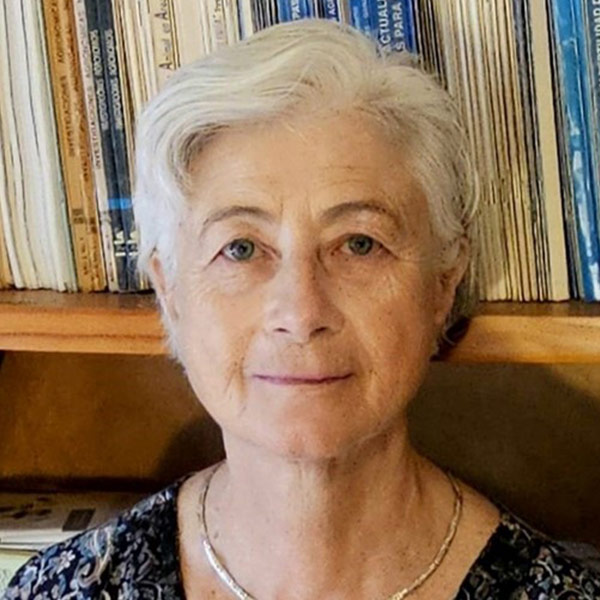
Silvia Germán Principal Researcher, National Agricultural Research Institute (INIA) of Uruguay and Professor, Universidad de la República, Facultad de Agronomía, Montevideo, Uruguay (photo and bio attached)
Wheat and barley breeder since 1979, focusing on breeding for disease resistance. My research also included epidemiology of rust diseases of wheat and barley (race identification, host-pathogen interaction, identification of sources of resistance and genetics of resistance). Further, it covered introgression of minor, durable rust resistance genes in adapted germplasm, combined with resistance to other important diseases such as fusarium head blight. I have published several papers and contributed to the release of 36 bread wheat cultivars and one malting barley cultivar and was responsible for the release of six malting barley cultivars. I trained and supervised young scientists and postgraduate students in the field of plant pathology, genetics and breeding. In 2017, I retired from my position as a Referent Principal Researcher at the National Agricultural Research Institute (INIA) of Uruguay, but continue to collaborate with my research team, lead one research project and supervise one Ph.D. student on wheat stripe rust epidemiology and host resistance. I have been engaged in international cooperation, representing Uruguay and Latin America in different committees and organizations.

Matthew Moscou Research Plant Pathologist USDA-ARS and Adjunct Assistant Professor - Department of Plant Pathology, University of Minnesota, St. Paul, USA
Matthew Moscou is a USDA-ARS Research Plant Pathologist at the Cereal Disease Laboratory and Adjunct Assistant Professor in the Department of Plant Pathology at the University of Minnesota, St. Paul, having recently moved from Norwich, UK, where he was a group leader at The Sainsbury Laboratory. Matthew’s career started at the University of California, Riverside, USA where he studied Pure Mathematics and Physics (BSc), working in the laboratory of Tim Close. He conducted his PhD work at Iowa State University in the group of Roger Wise, with work focusing on gene expression and regulation during the interaction of barley with different obligate biotrophic fungal pathogens. He joined as a post-doctoral scientist at the Sainsbury Laboratory in 2010 in the 2Blades Group with Eric Ward, promoted to team leader in 2012 and group leader in 2014. His group studies the interaction of cereals and rusts, investigating the complex evolutionary interplay between plant immunity and pathogen infection.

Brian J. Steffenson Professor and Lieberman-Okinow Endowed Chair of Cereal Disease Resistance, University of Minnesota, St. Paul, USA
Brian Steffenson received his B.S. and M.S. degrees in Plant Pathology at the University of Minnesota in 1980 and 1983, respectively. He then worked for several months as a research associate at the Waite Institute/South Australian Department of Agriculture and at the Plant Breeding Institute of the University of Sydney in Australia. He earned his Ph.D. in Plant Pathology at the University of California-Davis in 1988 and then accepted an assistant professorship at North Dakota State University (NDSU) with research responsibilities on foliar and head diseases of barley. At NDSU, he was promoted to associate professor in 1994 and professor in 2000. In late 2000, Brian accepted a professorship as the Lieberman-Okinow Endowed Chair at the University of Minnesota (UM) in St. Paul. He was honored with the title of Distinguished Global Professor at the UM in 2018. Brian was a visiting professor during several study leaves at the James Hutton Institute in Dundee, Scotland (2010-201), Institute for Cereal Crops Research at Tel Aviv University in Tel Aviv, Israel (2015), and John Innes Institute in Norwich, England (2019). Brian’s main research interests include exploiting cereal crop relatives for disease resistance genes, virulence and molecular diversity of cereal rust pathogens, and use of transgenes for plant disease control.

Stephen Strelkov Professor, Plant Pathology, Department of Agricultural, Food and Nutritional Science, University of Alberta, Edmonton, Canada
Dr. Stephen Strelkov is a Professor of Plant Pathology at the University of Alberta. He completed his B.Sc. at the University of Alberta and went on to earn M.Sc. and Ph.D. degrees in Plant Pathology from the University of Manitoba. After a brief period as an NSERC Visiting Fellow with Agriculture and Agri-Food Canada, Stephen accepted a faculty position at the University of Alberta. His research focuses on diseases of field crops, particularly clubroot of canola and tan spot of wheat. He has authored or co-authored over 240 peer-reviewed papers, as well as numerous research reports and extension articles. Stephen is actively involved in undergraduate and graduate teaching and has supervised or co-supervised 44 Master’s and Doctoral theses to completion. Throughout his career, he has received numerous research and teaching awards, and he currently serves as Vice-President of the Canadian Phytopathological Society.
Banquet Speakers

Thomas Fetch Retired AAFC Research Scientist - Stem Rust Pathology
Thomas Fetch earned a PhD in Plant Pathology from North Dakota State University in 1996. He joined Agriculture and Agri-Food Canada (AAFC) in May of 2000 as stem rust pathologist at the Cereal Research Centre in Winnipeg. He has authored or co-authored over 130 publications on stem rust resistance genes, pathogen virulence, and development of new barley, oat, and wheat varieties. He is recognized as a world authority on virulence in populations of Puccinia graminis (stem rust of wheat, barley, and oat), and stem rust resistance genetics in wheat, barley, and oat. During his career, he has identified several new stem rust resistance genes and their genetics of inheritance as well as developed new cultivars of wheat, oat and barley with stem rust resistance. While Tom retired from AAFC in 2022, he remains active in the research field holding affiliations as the Secretary of the Canadian Phytopathological Society (CPS), Associate Editor-in-Chief and Senior editor (Genetics & Resistance section) of Canadian Journal of Plant Pathology, and as Associate Editor for Plant Pathology Journal.

Brent McCallum Research Scientist, Plant Pathology, Agriculture and Agri-Food Canada, Modern, MB, Canada
I am a plant pathologist specializing in wheat leaf rust disease. My research is focussed on developing genetic resistance to leaf rust and working with plant breeders and geneticists to incorporate this resistance into Canadian wheat cultivars. My program is very collaborative with colleagues in many different research areas and at various research institutions across Canada and the world. My various research projects focus on the genetics of wheat leaf rust resistance. This includes discovery of resistance, determination of the genetics of resistance, fine mapping resistance genes, marker development and gene cloning. I also research the causal organism Puccinia triticina conducting an annual virulence survey of the pathogen and other genetic research on this pathogen.
Conference
Contacts
400 – 300 Terry Fox Dr
Ottawa, ON K2K 0E3
